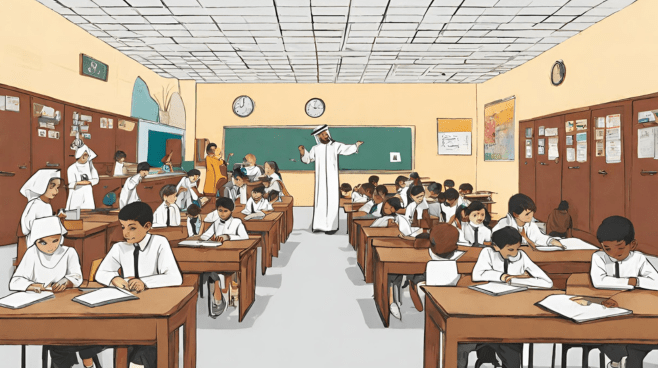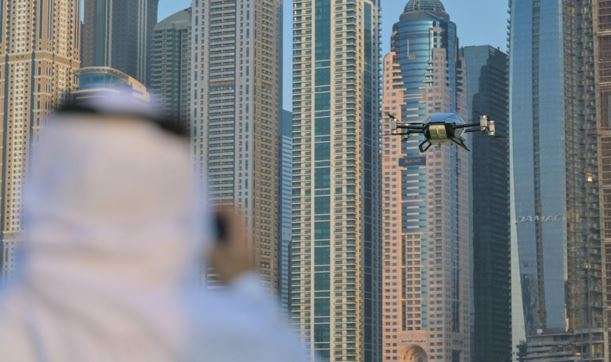Introduction
For parents all over the world, the education of their children is a top priority. This concern is especially significant for expat parents residing in the United Arab Emirates (UAE). Finding the right school that aligns with their values on curriculum, classroom culture, and budget can be a daunting task. In this comprehensive guide, we will shed light on the education system in the UAE, providing you with all the information you need to make informed decisions about your child’s education.
Education System in the UAE

The UAE, being a popular destination for expats from all around the globe, offers a wide range of educational options for children. However, it can be challenging for parents to find schools that are affordable, international, and currently accepting new students. As a relatively young country, the UAE has made remarkable progress in the field of education. In the mid-20th century, there were only a few formal schools, mainly in urban areas. Today, the adult literacy rate is nearly 95% for both genders, with thousands of schools spread across the country.
The Three Categories of the Education System

The UAE’s educational system can be broadly categorized into three groups: public schools, private schools, and higher education institutions. While the quality of education can vary significantly, there are strong schooling options available at every level in the Emirates. In fact, UAE schoolchildren ranked highest within Gulf countries and 45th globally in a 2015 global school rankings list.
Public Schools
The education system in the UAE follows a four-level structure in state schools, which includes:
1. Early Childhood Education (ages 3–5)
2. Basic level (ages 6–10)
3. Intermediate level (ages 11-13)
4. Secondary level (ages 14–18)
Education in public schools is universal, free of charge, and compulsory for Emirati children. However, it’s important to note that state schools are gender-segregated. While recent changes allow expat children to enroll in state schools for a fee, the language of instruction is primarily Arabic, leading many expats to opt for private schools.
Private Schools
Private schools in the UAE offer a wide range of curricula, including those based on the UK, US, Indian, French, German, Irish, and Canadian systems. These schools cater to both Emirati and expat children, providing various international education options. Private schools in Abu Dhabi and Dubai are supervised by the Abu Dhabi Department of Education and Knowledge (ADEK) and the Knowledge and Human Development Authority (KHDA), respectively. However, private schools throughout the country follow the guidelines set by the Ministry of Education (MOE) without direct government supervision.
Higher Education Institutions
The UAE boasts a high rate of tertiary school enrollment, with 95% of girls and 80% of boys applying to institutions of higher education. Emirati students can attend public universities free of charge. Additionally, the country is home to prestigious private universities, such as New York University Abu Dhabi, American University in Dubai, and Canadian University in Dubai, offering undergraduate and graduate studies to both Emirati and expat students.
Government Institutions Supervising Education System in the UAE

Education in the UAE is regulated by multiple bodies. The Ministry of Education (MOE) sets admissions standards, graduation requirements, and curricula on a federal level. Each Emirate also has its own regulatory bodies, such as the Abu Dhabi Department of Education and Knowledge (ADEK) and Dubai’s Knowledge and Human Development Authority (KHDA). These bodies contribute to significant educational differences between different Emirates. While private schools in Abu Dhabi and Dubai are supervised by ADEK and KHDA, private schools throughout the country follow the MOE guidelines but are not under direct government supervision.
Preschool Education System in the UAE

While education in the UAE is compulsory from the age of six, many Emirati and expat parents choose to enroll their children in preschool education between the ages of three and five. Preschools, both state and private, are usually co-educational, giving parents a wide range of options. Furthermore, many schools offer a K-12 education, eliminating the need for children to change schools during their early years.
Primary Education System in the UAE
Primary education in the UAE starts at the age of six and consists of grades 1–5 (ages 6–11). During this stage, students are expected to develop proficiency in subjects such as math, science, English and/or Arabic, and social studies. It’s important to note that the school week in the Emirates runs from Sunday to Thursday, which may require an adjustment for expat families. Public schools operate on a trimester system, while private schools generally follow a two-semester model. Both systems provide winter, spring, and summer breaks.
Primary School Curriculum
Private schools in the UAE offer a variety of curricula, including those based on the UK, US, or Indian systems, as well as the International Baccalaureate (IB) program. Teaching methods and assessment practices can vary, ranging from a focus on rote memorization and weekly testing to more flexible testing schedules and less rigid teaching styles. Graduation requirements differ between private and state schools, making it essential for parents to discuss teaching philosophies, available subjects, and testing schedules with school officials during their school search.
Secondary Education System in the UAE

Secondary education is mandatory for Emiratis until graduation, resulting in a nearly 97% graduation rate in the country. While state schools start secondary education in grade 9, private schools may adopt different models. Secondary schools in the state system teach similar subjects to primary schools but may add or drop certain courses, such as music. Public school students can choose to enroll in a technical secondary school or continue along an academic track, with vocational specializations ranging from computer technology to tourism, health sciences, and finance. Private schools, on the other hand, have more flexibility in their organization and policies.
Teaching Methods and Assessments
Teaching methods and assessments in secondary schools can vary but are likely to be similar to those employed in primary schools within the same institution. Many schools offer students the opportunity to choose subjects they are passionate about, allowing for a more personalized education. While public schools do not have overarching exams until the final year of secondary school, private schools may require students to pass international exams, such as the IB or the British GCSE, in order to graduate. Additionally, public school students must take the Emirates Standardized Test (EmSAT) starting from 2017, which is required for admission to most public universities and colleges.
Schools in the UAE
The UAE offers a variety of school options, including public and private schools, as well as international schools.
Public Education
Public schools in the UAE are free for Emirati children and charge a fee for expat students. The language of instruction is primarily Arabic, although English is also taught. To enroll a child in a public school, parents need to contact the Education Council in their region and submit an application form along with supporting documents, such as passports, residence permits, and rent contracts.
International Schools
Private international schools are abundant in the UAE, particularly in Abu Dhabi and Dubai. These schools follow various international systems, including those based on the US and UK models, as well as French, German, Indian, Irish, and Canadian systems. Admission requirements vary among schools, and popular schools may have limited availability. International schools cater to both Emirati and expat students, providing a diverse and multicultural learning environment.
Special Needs Education
The UAE is committed to providing inclusive education for students with special needs. Special education schools can be found throughout the country, with some incorporating special needs learning alongside mainstream classrooms, while others exclusively focus on students with special needs. Parents should consider factors such as fees, language of instruction (Arabic, English, or both), and whether the school is state or private when choosing a specialized school for their child.
Education Costs and Funding

Tuition fees in the UAE can be substantial. Public school fees for expat students range around 6,000 AED per year, while private school fees vary based on grade level, ranging from around 2,700 AED in kindergarten to approximately 70,000 AED in high school. While the government offers some financial aid, and schools may provide discounts or scholarships, high educational costs are a reality for most expat parents. Some employers cover the fees directly, alleviating the financial burden for expats.
Higher Education System in the UAE

The UAE has a high rate of tertiary school enrollment, with a significant percentage of students applying to institutions of higher education. Emirati students can attend public universities free of charge. The country also hosts renowned private universities, including branches of prestigious institutions such as New York University, American University, and Canadian University. These universities offer undergraduate and graduate programs, attracting students from all over the world.
Examinations in the UAE

Students in both public and private schools in the UAE undergo regular testing throughout the school year to ensure progression to the next grade level. Public schools do not have national standards exams until the final year of secondary school. However, private schools may require students to pass international exams, in addition to their regular assessments, in order to graduate. Starting in 2017, public school students and private school students following the national curriculum must take the Emirates Standardized Test (EmSAT) for admission to most public universities and colleges.
Educational Support for Expat Students

Expat students enrolled in public schools may face challenges due to the primary language of instruction being Arabic. However, private international schools cater to the needs of expat students more effectively, providing a familiar educational experience similar to their home country. These schools often offer a wide range of subjects, including Advanced Placement (AP) classes and preparation for exams like the SAT and GCSE. Arabic classes are generally available, and expat students have the opportunity to engage with a diverse student body.
Support for Children with Special Educational Needs (SEN)

Parents of students with special educational needs have various options throughout the Emirates. Some schools offer additional support or separate classroom instruction alongside mainstream classrooms, while others specialize exclusively in catering to students with special needs. Parents should consider factors such as fees, language of instruction (Arabic, English, or both), and the approach to education when choosing a school for their child.
Homeschooling in the UAE

Emirati parents have the right to homeschool their children and must register with the educational department in their respective Emirate. Homeschooled students receive books and study materials, and they must pass relevant exams at the end of each semester or academic year. Expat parents, on the other hand, are not subject to legal requirements for homeschooling in the UAE. Some expat parents choose homeschooling due to high tuition fees or concerns about bullying. Homeschooling can offer a more individualized approach to education, blending academic study with family leisure activities. In recent years, homeschooling associations, such as the Abu Dhabi Homeschoolers Association, have emerged to provide support to parents who choose this educational path.
Useful Resources

For more information on education in the UAE, the following resources can be helpful:
• Education for People with Special Needs
• Expats Must Plan Early for Children’s Education
• School Fees
• Education in the United Arab Emirates
• Help is Here for UAE Expats Facing Rising Private School Fees
Conclusion
Choosing the right education system for your child is a crucial decision, particularly as an expat in the UAE. This comprehensive guide has provided insights into the education system in the UAE, including the types of schools, curricula, enrollment processes, and more. By understanding the unique features and options available, you can make well-informed choices that prioritize your child’s educational needs and aspirations.



